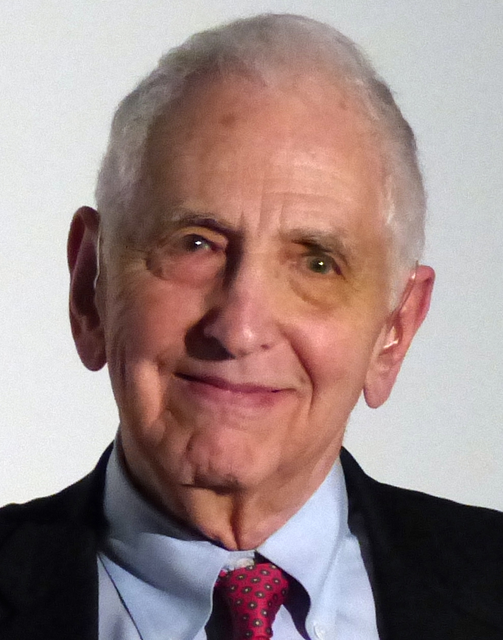|
Last weekend, dozens of public figures, including prominent whistleblowers and journalists, took part in a 36-hour international online vigil in defence of WikiLeaks editor Julian Assange.
The speakers included individuals who have been persecuted by governments for taking a courageous stand against war and authoritarianism.
 Daniel Ellsberg, whose release of the Pentagon Papers in 1971 exposed the extent of US criminality in Vietnam, drew a parallel between his own activities and those of WikiLeaks. Referring to WikiLeaks’ 2010 publication of US war logs in Iraq and Afghanistan, he stated: “I really waited almost 40 years, after the Pentagon Papers had come out, for someone to do what I had done.”
Ellsberg pointed to similarities between the attacks that had been levelled against him, and the persecution of Assange. “I was charged with 12 felony counts, a possible 150 years in prison. Nixon had in mind for me what Hillary Clinton and Barack Obama have had in mind for Julian Assange,” he said.
Ellsberg declared that WikiLeaks’ publications had exposed “our imperial operations worldwide” and had contributed to popular revolutions in Tunisia and Egypt.
He warned that it was “almost certain” that Assange would be extradited to the US to face espionage charges, if he was taken into British custody. Ellsberg stated that an espionage prosecution of Assange, a journalist, would have far-reaching constitutional implications.
“If that were successful, it would mean a real change in our constitution and in our regime. It would be a regime change,” Ellsberg said. “We have come very far from democratic institutions in recent years, as Ed Snowden revealed, but the pursuit of Assange would be one step further and would essentially chill all leaking and whistleblowing.”
Ellsberg stated that in persecuting Assange, the Trump administration has been emboldened by the corporate press, because the WikiLeaks editor could “not count on other journalists protesting, as much as they should, which is shameful of them.” 
Chris Hedges, a Pulitzer Prize-winning journalist and author, said that within the US intelligence apparatus, there was a “maniacal hatred of Julian and WikiLeaks. In their eyes they have to get him and they have to make an example of him so there won’t be any more Julian Assanges.”
Hedges placed the attacks on WikiLeaks in the context of the broader drive to end online freedom of speech. He referenced Google’s introduction of censorship algorithms last year, which he said were aimed at reducing traffic to the World Socialist Web Site, Truthdig and other “anti-capitalist” and “anti-imperialist” web sites.
Hedges stated that governments were using “the classic method, which is to tar WikiLeaks, or dissenters like myself, as being agents of a foreign power.” He explained: “We have the whole Russia hysteria here, which is a smokescreen and fictitious, but which the corporate media can’t spend enough time hyperventilating about. Because the elites do not want to acknowledge that it’s social inequality which they engineered which has created this loss of faith in the ruling ideology of global capitalism.”
Suzie Dawson read, in full, Hedges’ statement to the WSWS last month endorsing a Socialist Equality Party rally in defence of Assange, held in Sydney, Australia, which she said was “very gratefully received in whistleblower circles.” Hedges reiterated the call for pressure to be placed on the Australian government to force it to take immediate action to secure Assange’s freedom and safe passage to Australia, with a guarantee against extradition to the US. Read the full report on the WSWS | 
 Daniel Ellsberg, whose release of the Pentagon Papers in 1971 exposed the extent of US criminality in Vietnam, drew a parallel between his own activities and those of WikiLeaks. Referring to WikiLeaks’ 2010 publication of US war logs in Iraq and Afghanistan, he stated: “I really waited almost 40 years, after the Pentagon Papers had come out, for someone to do what I had done.”
Daniel Ellsberg, whose release of the Pentagon Papers in 1971 exposed the extent of US criminality in Vietnam, drew a parallel between his own activities and those of WikiLeaks. Referring to WikiLeaks’ 2010 publication of US war logs in Iraq and Afghanistan, he stated: “I really waited almost 40 years, after the Pentagon Papers had come out, for someone to do what I had done.”